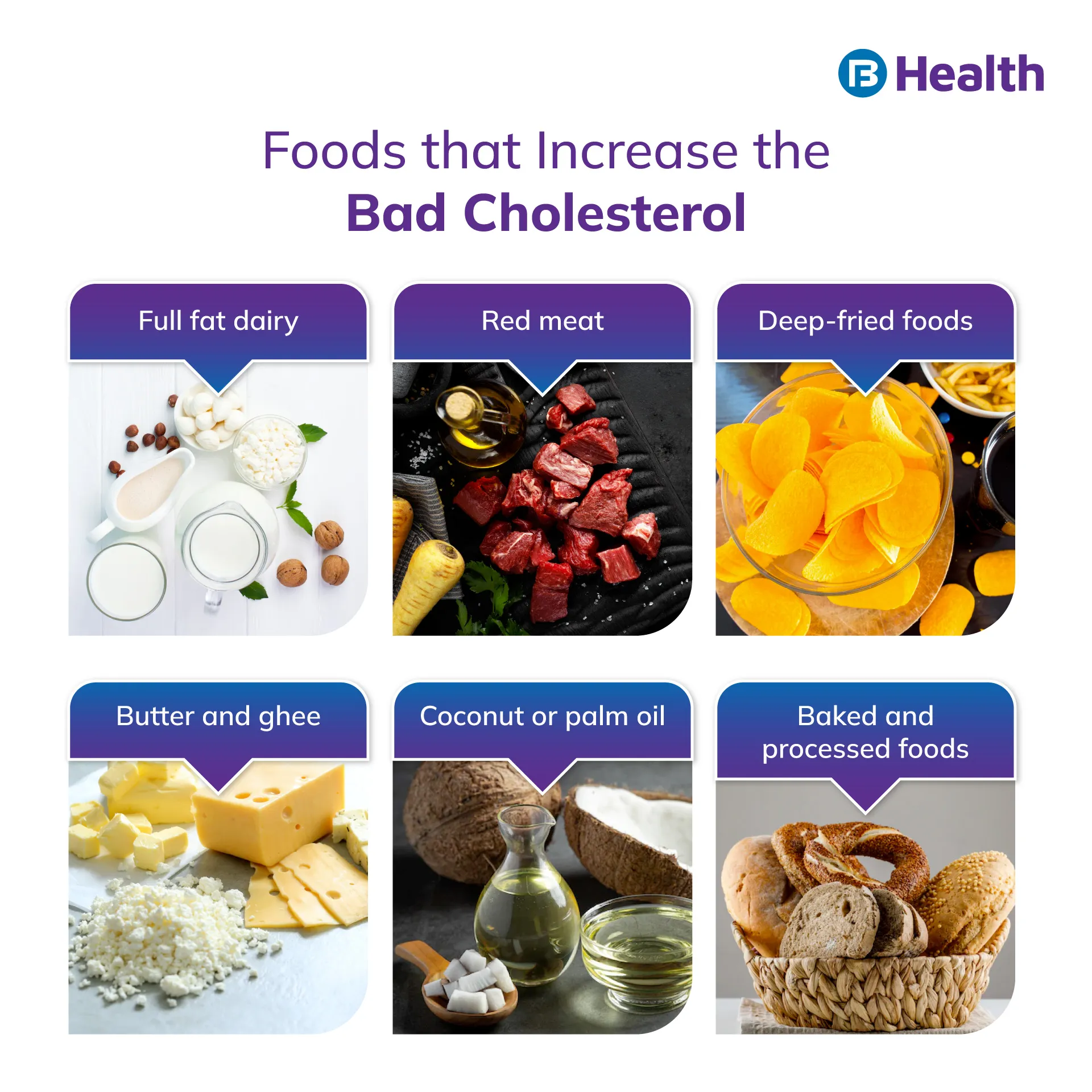Cholesterol | 4 min read
Cholesterol Test: Why and How is It Done? An Important Guide!
Medically reviewed by
Table of Content
Key Takeaways
- 25-30% of the urban population in India have high <a href="https://www.bajajfinservhealth.in/articles/how-to-reduce-cholesterol-5-lifestyle-changes-to-make-right-now">cholesterol levels</a>
- A cholesterol test must be done after every 5 years from age of 20
- A high level of bad cholesterol increases the risk of heart diseases
Cholesterol blood test, also known as a lipid profile test measures the cholesterol levels and other fats like triglycerides in your blood. The cholesterol test helps determine the risk of plaque in arteries that may lead to heart diseases. Cholesterol is a waxy substance that is essential to keep your body's organs and cells healthy. Although your liver produces cholesterol, you can gain it through foods including dairy products, meat, and eggs.
Cholesterol, to a certain extent, is healthy. However, too much of it can form a build-up that increases your risk of stroke, atherosclerosis, and heart diseases. In India, high cholesterol is present in 25-30% of the urban and 15-20% of rural populations [1]. Note that the prevalence of high cholesterol is more in high-income nations. The CDC suggests a person should get a cholesterol test done in every 5 years beginning from age of 20.
Read on to know all about cholesterol levels and the cholesterol blood test.
Additional Read: High Cholesterol SymptomsFood that increase bad cholesterol

What is measured with a cholesterol blood test?
A cholesterol blood test measures the levels of different fats in your blood:
- HDL cholesterol: High-density lipoprotein or HDL cholesterol is known as good cholesterol. It helps eliminate low- density lipoprotein or LDL cholesterol, also known as bad cholesterol, from your blood.
- LDL cholesterol: It leads to a build-up of plaques in your arteries which can block the flow of your blood. The plaque can rupture and cause a heart attack.
- Triglycerides: These are types of fats that your body breaks down your food into. A high level of triglycerides raises the risk of heart disease. Several factors like obesity, type 1 and type 2 diabetes, excessive alcohol, smoking, and an unhealthy diet increase the level of triglycerides.
- VLDL: Very low-density lipoprotein (VLDL) is a type of bad cholesterol that increases the risk of cardiovascular diseases. High VLDL levels are associated with the development of plaque. The cholesterol test does not directly measure VLDL. It is calculated as 20% of triglyceride levels.
- Total cholesterol: It is the combined level of cholesterol that includes your HDL, LDL, VLDL, and triglycerides levels. While total cholesterol, triglycerides and HDL cholesterol are measured directly, the values of LDL and VLDL cholesterol depend on HDL, triglycerides, and total cholesterol
What should be the cholesterol test normal range?
The level of cholesterol is measured in milligrams per deciliter (mg/dL). The cholesterol test normal range is as follows [2]:
- HDL cholesterol - 40 to 60 mg/dL or greater
- LDL cholesterol: Below 100 mg/dL
- VLDL cholesterol: Less than 30 mg/dL
- Triglycerides: Under 150 mg/dL
- Total cholesterol: Less than 200 mg/dL
When should you get a cholesterol test done?
The National Heart, Lung and Blood Institute (NHLBI) recommends screening of cholesterol between the ages of 9 and 11. Thereafter, the test should be repeated after every 5 years. Further, it recommends screening for cholesterol every 1-2 years for males between the ages of 45 to 65 and females aged between 55 to 60. Those above the age of 65 years should get a cholesterol test done every year. Besides, your doctor may order you a cholesterol blood test if you have the following:
- Family history of high cholesterol or heart diseases
- Obesity
- Smoking habit
- An unhealthy diet
- Sedentary lifestyle
- Coronary artery disease
- High blood pressure
- Diabetes or kidney stone
- Alcohol addiction
- Previous reports of high cholesterol – undergoing treatment
How is a cholesterol blood test done?
A cholesterol blood test is usually done in the morning and may require you to fast for several hours before the test. During the this test, a healthcare professional will collect a blood sample from the veins in your arm by using a needle. Before inserting the needle, the puncture area is cleaned with antiseptic. Then, your upper arm is wrapped with an elastic band to help fill the blood in your veins.
Your blood is collected into a vial after drawing it out with the needle. The elastic band is then removed to normalize blood circulation. Once the required amount of blood is collected in the syringe or vial, the healthcare professional will take out the needle and apply a bandage to the skin area. The cholesterol test procedure takes a few minutes to complete.
Additional Read: Dietary CholesterolAn inactive lifestyle and poor diet are some factors that increase bad cholesterol. You must take appropriate measures to lower the risk of complications such as stroke and heart attack. One easy precaution you can take is to book online consultations with the best doctors near you on Bajaj Finserv Health. Here, you can also book a full body check-up package including a cholesterol blood test. This way, you can keep your cholesterol levels under check.
References
- https://www.healthline.com/health/cholesterol-test#understanding-results
- https://medlineplus.gov/lab-tests/cholesterol-levels/#:~:text=A%20cholesterol%20test%20is%20a,disease%20and%20other%20serious%20conditions.
- https://www.mayoclinic.org/tests-procedures/cholesterol-test/about/pac-20384601
Disclaimer
Please note that this article is solely meant for informational purposes and Bajaj Finserv Health Limited (“BFHL”) does not shoulder any responsibility of the views/advice/information expressed/given by the writer/reviewer/originator. This article should not be considered as a substitute for any medical advice, diagnosis or treatment. Always consult with your trusted physician/qualified healthcare professional to evaluate your medical condition. The above article has been reviewed by a qualified doctor and BFHL is not responsible for any damages for any information or services provided by any third party.






